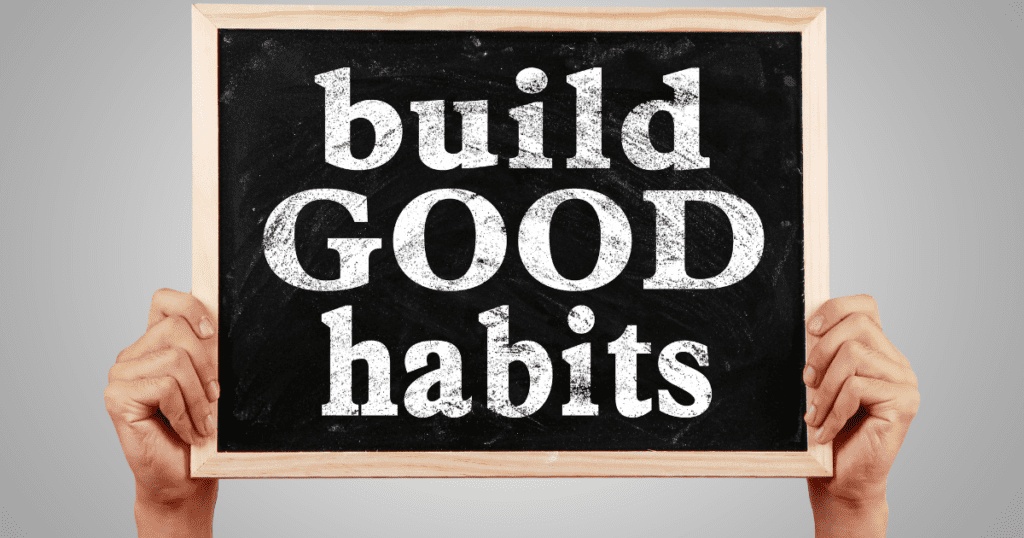
Middle school is the beginning of a significant shift in responsibilities for students.
Before, your child had one or two teachers they saw each day. They may have two rooms that they move between for their subjects.
Some still have cubbies, and personalized spaces carved out in their classrooms!
Middle school demands different skills. More independence. Changing classes. More teachers!
Some children will adjust well to the increased responsibilities, and likely have little difficulty with this change.
Other children may struggle with this change. Long story short, students need organizational skills to survive middle school.
There are three tips for helping your middle schooler boost their organizational skills:
- Help your child build good solid organizational habits.
- Provide support and watch their progress
- Help them foster independence with their organizational skills
Being organized does not look a particular way. There are various ways to help our children build solid organizational skills. Building organizational skills will help our children beyond middle school.
There are key features that middle schoolers need for good organizational skills.
1. Help Your Child Build Solid Habits

As with any skill, the magic is in regularly practicing good habits.
Being organized requires students to develop critical behavioral skills, which help us as adults keep our lives in order. Habits are typical behaviors that we engage in over time. In turn, we may need to teach specific organizational habits to our children.
Let’s discuss critical behaviors that students need for organization.
Establishing Routines
Most of us can agree that our days are predictable. With this, predictably, we can begin to develop daily routines. A few familiar routines include showering, brushing our teeth, and getting the kids to sports practice.
It can be insightful to help our children walk through a typical day at school. They can then see that their days involve regular daily routines, which can help them identify key activities they need to be ready for their school day.
These activities may include both school-based and home-based tasks. Several of the following tasks can help establish a daily routine at home:
- Weekly book bag clean-out day
- Regular bedtimes
- Daily homework schedule
Having time for cleaning out their bookbag can assist a disorganized student. This may prevent them from lugging around items they no longer need.
A clean bookbag can also assist a child with knowing where their items are so they can turn in their homework.
Your child needs a regular bedtime so that they have energy for learning! Getting good rest is also essential for brain health, and a healthy brain is also necessary for organizational skills.
Making sure your child has a daily homework routine helps prepare for the next day’s lesson. On nights when your child does not have homework, set an expectation for study. Homework struggles can sometimes arise due to a lack of consistent expectations.
Managing Time Well
Your child’s ability to manage how they use their time is another critical habit that helps with organization.
Learning how much time an assignment will take can take time, and your child may need to know how long their math homework will take.
They will likely have assignments due around the same time across many classes. Also, your child’s increasing workload can be overwhelming without a way to get it all done.
The following activities can assist your child in effective time management:
- Conduct a time study of how long assignments take
- Put assignments and tasks due date order
- Break up time spent studying and doing homework
Conducting a time study can give you and your child a better idea of how much time they will need for assignments.
To conduct a time study, have your child look at their assignment and guess how long it will take. Make a note of this time estimation that your child makes. Next, time how long it takes from start to finish. Then review this with your child to see how the times match up.
The actual length of time can be their starting point when setting up their study routine.
Advising your child how to rank their assignment according to the due date is an excellent next step. I have worked with students who would complete their projects out of order. Because of this, they would turn in assignments late and miss points.
Keeping a list of assignments helps with managing time. Some children love to use a paper planner. Other children prefer to use an electronic scheduler. Please work with your child to see which method works best for them.
Have A Place For Everything You Own

“A place for everything, and everything in its place.”
Another critical organizational practice involves keeping belongings in their place.
My personal experience with this habit comes from years of practice with my son. I will sometimes check his room and find that he has items laid out on his floor or dresser. My response is always that he needs to put things in their place.
Getting into the routine of putting items in their place keeps disorganization down.
My husband and I keep our keys in the same place, so we know where to find them when we need them. I encouraged my son to keep his keys in the same area so he can find them in the morning. This reduces the likelihood of frantically tossing items around, looking for his keys.
Setting up a dedicated space next to the front door for quick retrieval in the morning can help. Having a space by the front cuts down on time your child may spend backtracking looking for items.
Your child’s teachers may use color-coded classroom folders to keep subjects organized. Even if your child’s school does not use this system, you can put this in place with your child.
Thinking and Planning Ahead
Pre-planning is a behavior that helps with anticipating regular tasks your child has.
You can have your child walk through their day with you and use visualization to plan in advance.
Have your child tell you to walk you through what happens when they enter math. Ask questions! You will often find that teachers have a routine built into their classes, which can help your child “see” how to navigate expectations from class start to end.
Make time to sit with your child and review assignments, tests/quizzes, and due projects.
Establishing a day to review your child’s schedule helps you stay current with upcoming assignments. From here, you can work with your child to break down larger tasks into smaller, manageable chunks.
You can also learn how your child’s teacher shares project information with their students.
2. Monitor and Provide Support To Your Child

A common mistake we make as parents is taking away support far too soon. We get excited when we see the first sign of progress!
A good organizational routine takes time to work through. If your child has struggled with organization, they need time! They will likely need continued support to embody these behaviors.
A child’s autonomy is essential. Through this process, you can discuss how to support them.
Regular communication with your child’s teacher may be necessary. This can help your child feel supported, especially if being organized has been challenging.
Let your child know that you will check in every night. Please take a few minutes to ensure their homework and assignments are in the correct folder.
You can also do a quick bookbag check to ensure they have what they need. Come up with a “quick check” to ensure they have performed the identified behavior(s).
The amount of support your child needs will vary. If your child lacks awareness of their lack of organization, they may need more help.
If your child has no problem with organization skills at home, they may need less support. They may need brief checks as they get acclimated to middle school.
This leads to the last tip for boosting organizational skills with your middle schooler.
3. Work to Foster Independence

Establishing independence is a crucial life skill that grows in importance the closer your child moves toward adulthood.
Your child must experience increasing autonomy for healthy personal development. Without stopping abruptly, you can slowly remove the support they are getting.
Consider the following when determining how to adjust the support you provide:
- Make sure your child has had enough time to practice the skill
- Remind them to practice often
- Allow space for your child to make their system their own
The amount of time your child has to practice organizational behaviors will vary. They may become more organized with little help and support, and other children may need more time.
Before removing support, make sure they have the skills! You may need a few weeks for most children, and others may need help for longer.
Your support may fade to a simple reminder to check their planner. You may ask your child if they have checked their folders and put their bookbag by the door.
A verbal nudge may be required for your child to remember what they’ve learned after a while.
From this point, you will likely see that your child has personalized their routine. This is great!
Even if you thought your methods were the best, they would likely stick with the plan longer when it’s their idea.
Conclusion
Middle school can be a time of great transition. This time demands more of our children than ever before, but with our support, they can succeed.
We start by helping our children practice key organizational behaviors.
From there, we support them and allow them to own the process and blossom as middle schoolers!
